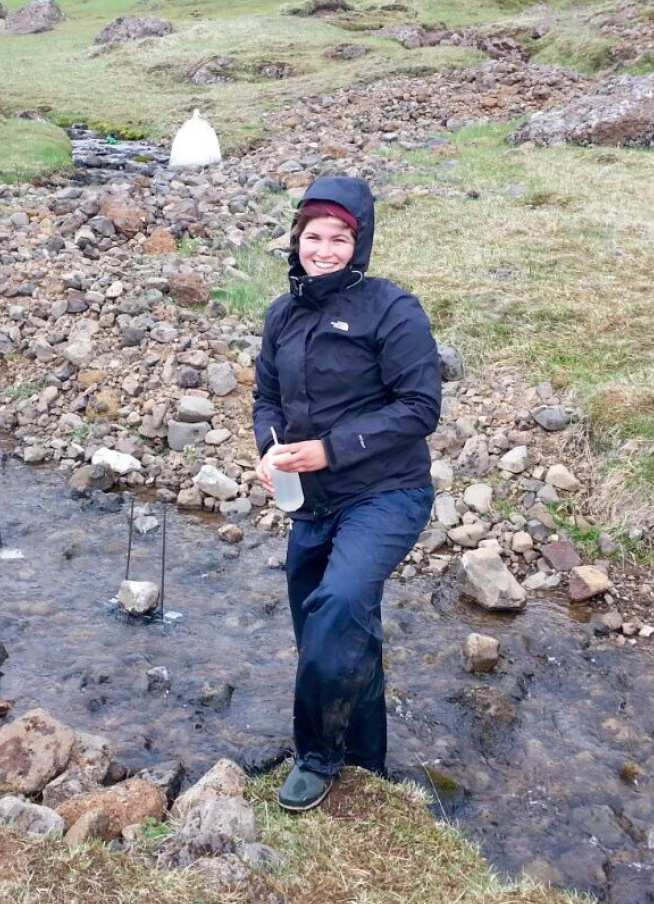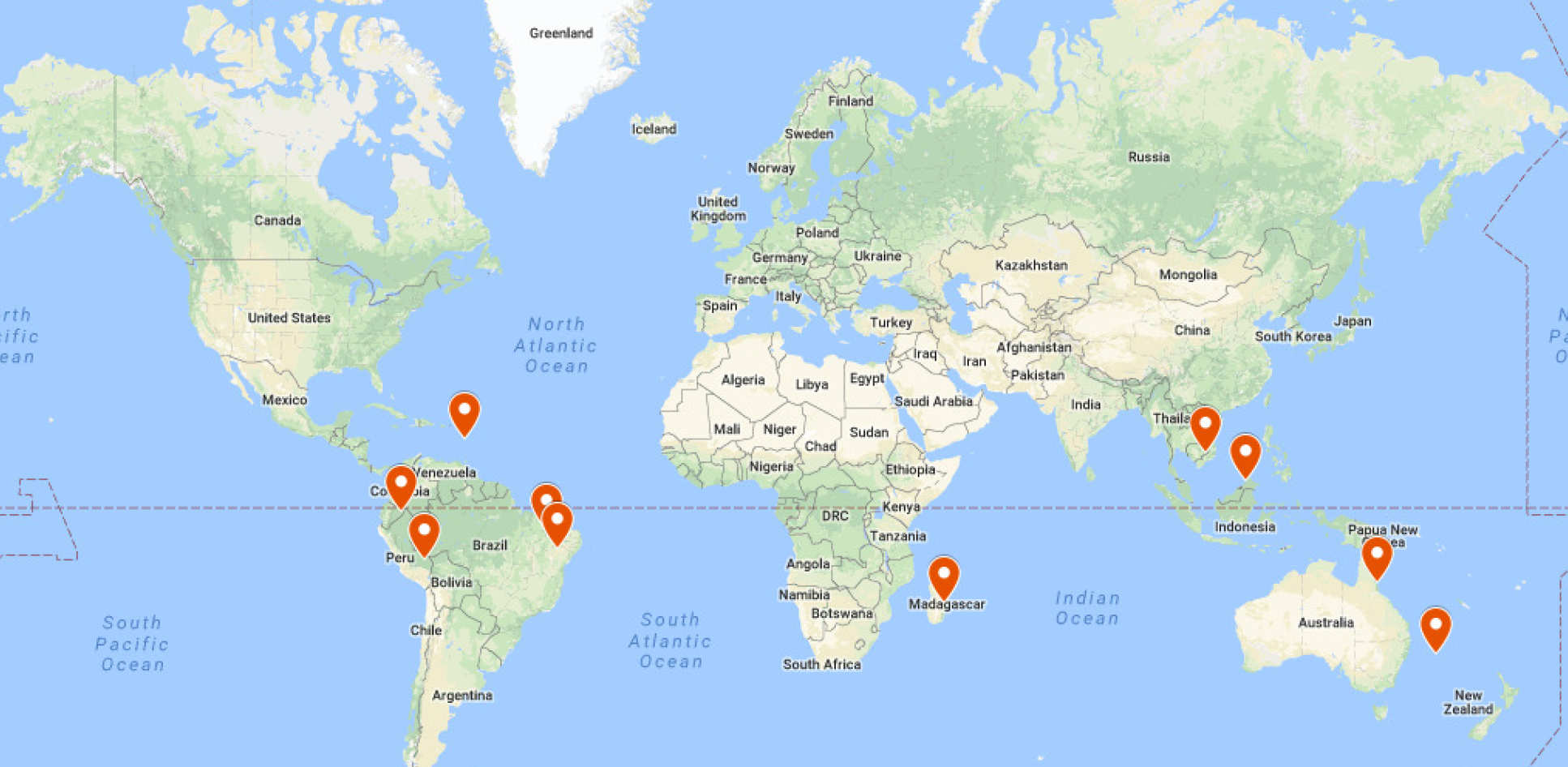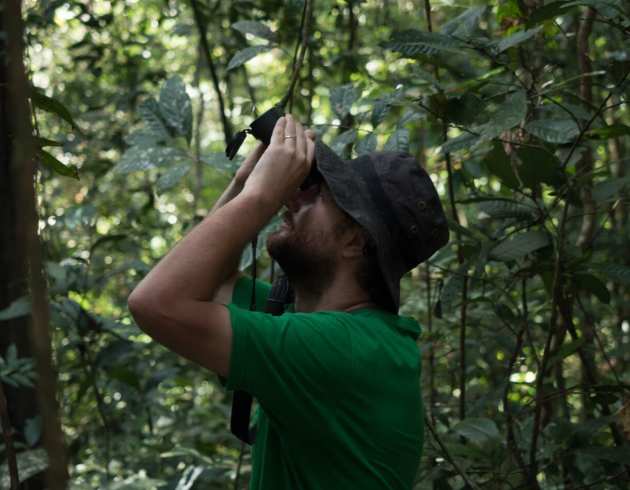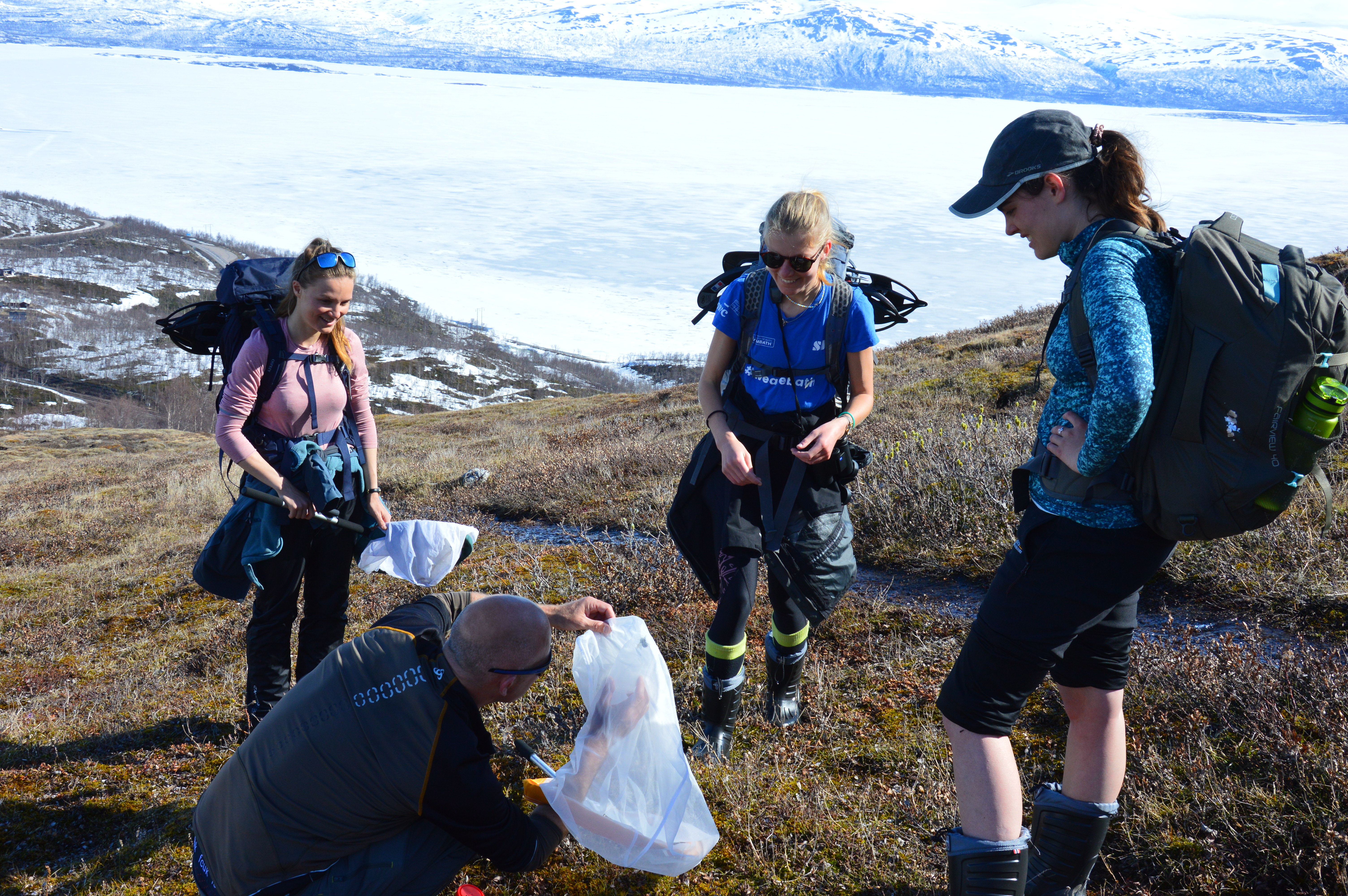Discover what students think of our courses and view examples of their projects.
Information
- MSc or MRes in Computational Methods in Ecology and Evolution: Project examples
- MSc Research Methods in Ecology: Student research

The Cultural Evolution of Evolution. 2017. Marina Papadopoulou. Marina started a PhD in computational models of collective behaviour of bird flocks at the University of Groningen in October 2017.
An exploration of linkage disequilibrium measurement and interpretation of decay using next generation sequencing data. 2017. Emma Fox. Emma started a PhD in Ecology and Evolutionary Biology at UCLA in September 2017.
Is modelling the physiological niche of Pacific bluefin tuna (Thunnus orientalis) a better method of predicting movement than the ecological niche? 2017. Rebekka Allgayer. Rebekka started a PhD on Integrating fish tracking and genetics to inform conservation management of Atlantic salmon at The University of Aberdeen in October 2017.
A Mechanistic Model of Bacterial Evolutionary Responses to Antibiotics in Communities of Varying Size. 2016. Leanne Massie. Leanne started a PhD in Bioinformatics and Theoretical Systems Biology in Michael Stumpf's group at Imperial College London in 2016.
The effects of environmental temperature and thermal adaptation on predator-prey interactions. 2015, Louise Archer. Louise started a PhD with Tom Reed at University College Cork, Ireland on evolution and ecology of alternative life histories in brown trout.
Individual-Based Modelling of Microbial Community Invasions. 2016, Jean Vila. Jean started a PhD student in the laboratory of Alvaro Sanchez at Yale University on eco-evolutionary feedbacks in microbial communities.
Modelling the evolution of gene-specific ecological divergence in bacteria. 2016, Michael Schmutzer. Michael started a PhD with Andreas Wagner at the University of Zurich.
Assessing general models for the temperature dependence of population density in disease vectors. 2015, Tom Smallwood. Tom started a PhD on the ecology of infectious diseases with Rosie Woodroffe at ZSL.
Why Do Whales Exist?: An Investigation into Cancer Resistance in Cetaceans. 2015, Matthew Speight.Matthew Started a PhD in Interdisciplinary Biosciences at Oxford University.
Linking the Impact of Selective Logging with Seedling Recruitment Dyanmics. 2015, Michael Massam. Michael started a PhD in the Edwards lab at Sheffield University on optimising logging strategies in the Brazilian Amazon to minimise biodiversity loss.
Modelling the relationship between local biodiversity and remotely-sensed vegetation indices: the effect of spatio-temporal scale. 2012, Sean Tuck. Sean was accepted to become a PhD student in the laboratory of Andy Hector, Oxford University. Also see MODISTools: an R package for retrieval and processing of remote-sensing data from NASAs MODIS satellites.
Finding value in SAD moments: a novel approach to upscaling species-abundance distributions. 2012. Hercules Araclides. Hercules was accepted to become a PhD student, beginning September 2012, in the laboratories of Pierre Legendre, University of Montreal, and Jonathan Davies, McGill University, Canada.
Eco-evolutionary dynamics in the bighorn sheep: linking population growth, trait variation and heritability of body mass. 2012. Michela Busana. Michela became a PhD student in a joint studentship between the University of Sheffield and the University of Groningen
Investigating climate change extinction risks of amphibians by simulation: the importance of life history and thermal performance traits. 2012. Bonnie Mappin. Bonnie became a Research Assistant in the laboratory of Simon Hay, Spatial Ecology and Epidemiology Group, Department of Zoology, Oxford University. She is working on the Malaria Atlas Project.
Testing for a random walk hypothesis with or without measurement error. 2012. Tin-Yu Hui. Tin-Yu became a PhD student in the laboratory of Austin Burt, Division of Ecology and Evolution, Imperial College London.
Modelling the impact of a keystone species on community diversity and stability. 2012. Jon Hamley. Jon became a PhD student in the laboratory of Jacob Koella, University of Neuchatel.
Survival of an exploited grey wolf population in the Northern Rocky Mountains: density dependence and licensed hunting. 2011. Jack Massey. Jack became a PhD student in the laboratory of Tim Coulson, Oxford University.
Demographic and evolutionary implications of lion body size: the application of an integral projection model to a large carnivore. 2011. Rebecca Spriggs. Rebecca became a PhD student in the laboratory of David Coomes, Department of Plant Sciences, Cambridge University.
Predicting induced chaos in the population dynamics of an insect species. 2011. Dimitrios Nerantzis. Dimitrios became a PhD student in the laboratory of Claire Adjiman, Department of Chemical Engineering, Imperial College London.
A synergy between wild and commercial: bio-economic modelling of python farming. 2011. Carolina Feijao. Carolina became a PhD student in the laboratory of Paul Dupree, Department of Biochemistry, Cambridge University.
Students on the MSc Research Methods in Ecology get involved with a wide variety of thesis projects in a wide variety of places. Your choice of thesis project is driven first and foremost by your interests. You won’t be assigned a project; rather, we will work with you to find a project and a supervisor with complementary skills and expertise.
Where students conduct their research
We encourage students to take advantage of the world’s tropical forests and to get out there and collect field data.

What topics do students work on for their theses?
Beyond a reasonable expectation that you will work on something ecological somewhere in the tropics, we don’t place limits on you. Past students on the course have conducted a wide variety of research projects ranging from intensive field campaigns to more desk-based computational challenges, on topics as varied as physiology, genomics and community ecology, and on taxa as diverse as soil microbes to fish to birds.

Example projects from previous years include:
- Comparative stand dynamics of tropical savanna and forest trees in Australia
- Using mammal trapping and camera trap data to validate the Madingley Model for a Bornean rainforest
- Quantifying changes in orangutan feeding ecology, distribution, abundance and health due to deforestation in Malaysian Borneo
- The importance of vertebrates in regulating herbivory pressure along a gradient of logging intensity
- Leaf thermoregulation in the semi-arid tropics
- Alterations in avian physiology and behaviour across a gradient of fragmentation
- Forest edge influence on species richness and functional characteristics of epiphytic orchids in oil palm plantations
- Testing the bisexual advantage model in male rhesus macaques
- Land-use induced shifts to the ecology and behaviour of bearded pigs (Sus barbatus)
- Biotic and abiotic factors associated with the amphibian pathogen Batrachochytrium dendrobatidis in Ecuador
- Using environmental DNA to monitor the presence of tropical otters in lotic systems
- Effects of microclimate on the distributions of mosquitoes across a tropical forest-oil palm land-use gradient
- Small carnivore response to disturbance-mediated shifts in prey distribution throughout Bornean rainforests
- Investigating the resilience of termite communities to selective logging and climatic changes in Malaysian Borneo
- The dietary impacts of deforestation on Macaca fascicularis (Long-tailed macaque) using metabarcoding
- The conceptual model as a tool for quantitative modelling in adaptive management: a case study from Cambodia
Enquiries
Research
james.ferguson@imperial.ac.uk
+44 (0)20 7594 6407
r.hamilton-nixon@imperial.ac.uk
+44 (0)20 7594 3096
Masters
pgtlifesciences@imperial.ac.uk (South Kensington courses)
pgt.silwood@imperial.ac.uk (Silwood Park courses)
Other contacts
Director of Postgraduate Studies
Professor James Rosindell
j.rosindell@imperial.ac.uk
Postgraduate Senior Tutors (South Kensington)
Dr Abigail Clements
a.clements@imperial.ac.uk
Dr Marco Trizzino
m.trizzino@imperial.ac.uk
Postgraduate Senior Tutors (Silwood Park)
Dr Emma Ransome
e.ransome@imperial.ac.uk
Dr Julia Schroeder
julia.schroeder@imperial.ac.uk
